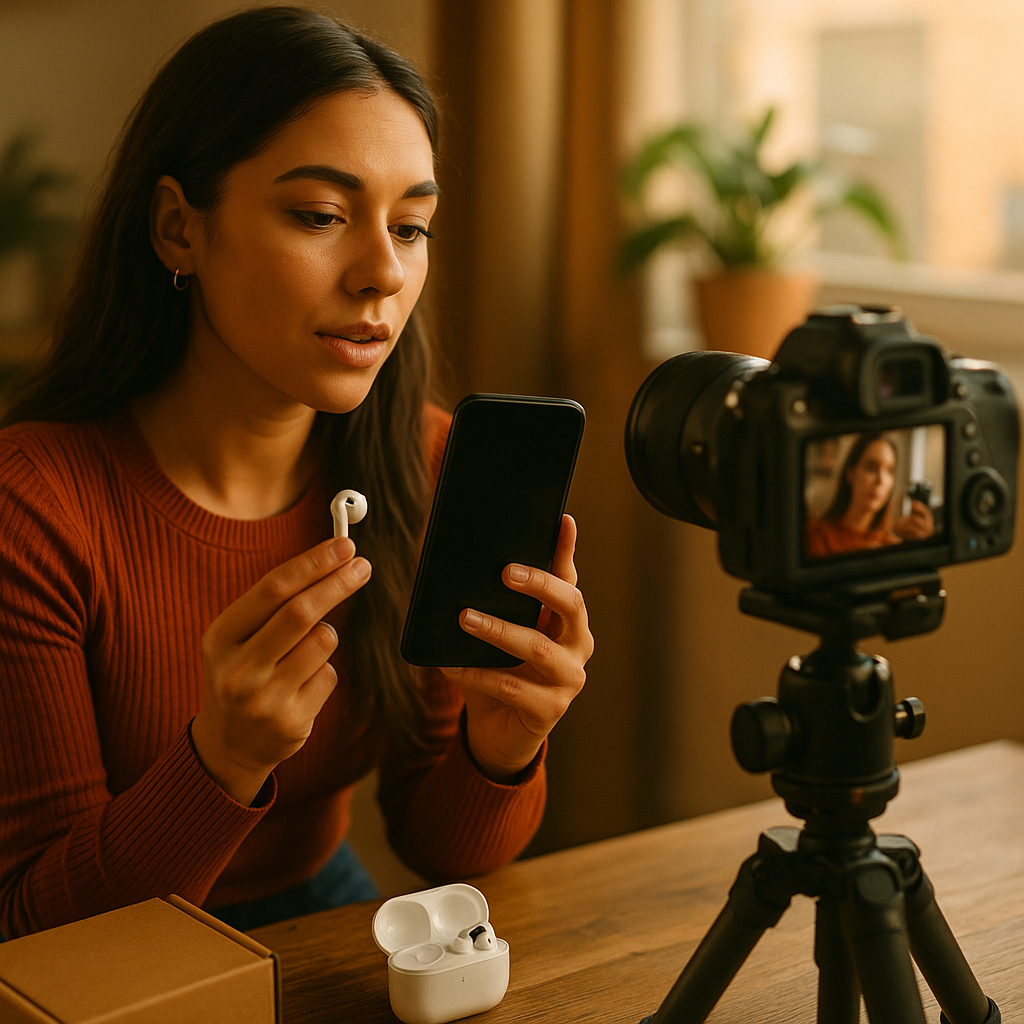Product testers as the new influencers are reshaping the world of digital marketing in 2025. With authenticity valued more than follower counts, brands and consumers are turning to these trusted voices for honest product feedback before making a purchase. Read on to learn how product testers are redefining influence—and why their insights matter now more than ever.
The Rise of Product Testers in Influencer Marketing
Influencer marketing has transformed dramatically in recent years, shifting focus from traditional celebrities to everyday individuals. Product tester influence has skyrocketed, as brands realize that consumers crave genuine, experience-based recommendations rather than polished promotions. Unlike conventional influencers, product testers specialize in trying products and sharing unbiased, detailed reviews, often across social media and dedicated review platforms. Their content bridges the gap between advertising and consumer trust.
This evolution reflects a wider cultural trend: audiences are increasingly savvy, valuing detailed, real-world insights over glitzy sponsorships. In 2025, as purchasing decisions become more complex, consumers seek guidance from voices who’ve tested and critiqued items first-hand, whether tech gadgets, skincare, or household items.
Why Audiences Trust Product Tester Reviews
The credibility of product testers is rooted in their methodology. They often approach each review with a structured process—evaluating packaging, functionality, performance, and value. They usually provide clear evidence such as photos, video demonstrations, and long-term follow-ups, creating a transparent experience for their audiences.
Unlike paid endorsements, testers tend to give balanced perspectives, highlighting both pros and cons. This transparency resonates with consumers wary of sponsored content. According to a recent survey conducted in early 2025, 78% of consumers say they trust product testers over traditional influencers when making buying decisions.
How Brands Leverage the Power of Tester Collaborations
Brand partnerships with product testers are becoming central to many companies’ marketing strategies. Rather than paying for scripted posts, brands now provide samples or prototypes, inviting testers to share honest feedback. This approach humanizes the brand and provides social proof, reducing skepticism and increasing authenticity.
Well-executed collaborations benefit both parties:
- Brands gain genuine feedback for product improvement and future marketing.
- Testers grow their platforms through association and exclusive content.
- Audiences receive useful, in-depth guidance relevant to their needs.
For example, technology brands often beta-test devices with trusted reviewers, building anticipation and trust before public launch. Beauty and wellness companies send early samples to product testers, whose trials are eagerly followed by engaged communities seeking unbiased opinions.
The New Metrics of Influence: Engagement over Followers
The measuring influence in the tester era involves more than follower counts. Brands increasingly focus on engagement metrics such as:
- Comment quality and quantity—Are followers asking thoughtful questions?
- Content depth—Is the review comprehensive and demonstrative?
- User-generated content—Do followers share their own experiences based on the tester’s review?
This shift encourages an informative ecosystem. The most successful product testers foster trusting communities through regular interaction, transparent disclosure of partnerships, and meticulous response to feedback. In 2025, marketers report up to 30% higher conversion rates from product tester collaborations compared to traditional influencer campaigns, proving the commercial value of deep, genuine engagement.
Building EEAT: Experience, Expertise, Authority, and Trust
Product testers excel in meeting Google’s EEAT (Experience, Expertise, Authority, Trust) standards for helpful content. Here’s how they accomplish it:
- Experience: Testers use products in real environments and share the unfiltered results, including challenges and workarounds.
- Expertise: Many have specialized knowledge—tech literacy, skincare science, home improvement—that adds depth to their reviews.
- Authority: Consistent, high-quality content delivery establishes them as go-to sources in their niches.
- Trust: Authenticity, clear disclosures, and regular audience engagement cement their reputation.
Audiences—and search engines—reward testers who combine these standards. Their digital footprints often include social proof, professional credentials, or longstanding online presence, further reinforcing the helpfulness and reliability of their advice.
The Future of Purchasing: Why Product Tester Insights Matter
Consumer decisions in 2025 are data-driven and community-informed. With e-commerce platforms overflowing with options, the average buyer faces decision fatigue. Product testers break through the noise, transforming uncertainty into informed confidence by offering:
- Comparative reviews for similar products
- Use-case testing (e.g., durability under specific conditions)
- Accessibility and inclusivity insights
- Troubleshooting and workarounds
This trend is especially beneficial for niche, technical, or higher-investment purchases. As smart shoppers demand clarity and value, product testers are well-positioned as the trustworthy guides the digital marketplace needs.
Conclusion: The Influence Revolution Shaped by Product Testers
Product testers as the new influencers offer a winning blend of authenticity, expertise, and trust. They empower consumers with real-world insight while helping brands connect credibly with their target audience. The next time you’re weighing a purchase, look for a product tester review—because in 2025, that’s where real influence lives.
FAQs About Product Testers and Influence in 2025
-
What sets product testers apart from traditional influencers?
Product testers focus on hands-on, unbiased evaluations rather than promotional content. Their insights stem from real use and detailed analysis, making them more trustworthy and practical for consumers. -
How do brands choose which product testers to work with?
Brands assess testers based on niche relevance, content quality, engagement level, and authenticity. They value testers who provide honest, thorough feedback and foster active communities. -
Can anyone become a product tester?
Yes—anyone passionate about a product category and committed to transparency can start. Building trust and authority takes time, consistent content, and ethical practices. -
Are product tester reviews always unbiased?
While most strive for honesty, it’s important to check for disclosure of sponsorship or free samples. Look for a tester’s track record of highlighting both pros and cons. -
How can consumers find trusted product tester reviews?
Seek out multiple sources, prioritize testers who share detailed processes, and check audience feedback and engagement for added credibility.
